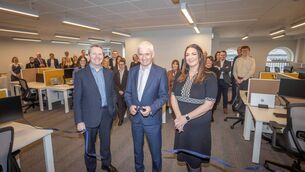Two young professionals air views on pensions

Pension affordability may dissuade one young professional from making an early start on saving for retirement.
One of the enduring cultural artefacts that will remain when the Irish Generation Zs are cashing (or perhaps not cashing) in their pension pots will be the liberties they have taken with the English language, and they don’t seem remotely soz about it at all.
Which makes it surprising that the word ‘pensions’ has escaped unscathed, for now at least anyway. But given their stifled yawn and bored countenance among many when the topic is raised, surely ‘pensionszzzzzzzzz’ can’t be too far away in the future.








